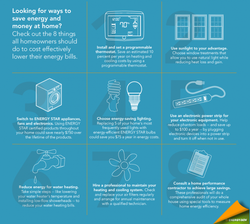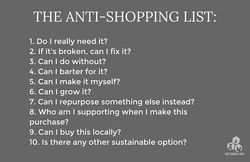FINANCE
WHAT FINANCIAL ISSUES ARE THERE?
Dealing with money issues can sometimes be off-putting, but if you don't understand how things like credit or mortgages work, you could end up losing out financially or getting yourself deep in debt. Similarly, If you don’t have enough to live on, you might be able to get help from the government or your local council to afford essentials like bills and food. This includes the Household Support Fund and Cost of Living Payments.
There are a number of tools available to help you with budgeting and working out your income and outgoings. These are in the links attached. There are also a number of tools you can access which will help you to see if you are entitled to any extra help and benefits.
Benefits are available to people for a number of different reasons. This may be due to low income, disability, carers and a whole host of other reasons that you may need some assistance. It is important to claim these in order for you to be able to manage to pay your bills and provide yourself and your family with the essentials.
WHAT CAN I BE DONE FOR EXISTING DEBT?
If you have lots of debts and are struggling to pay, there are things you can do to help you get out of debt.
You might be able to talk to your creditors and arrange a way to pay them, or make a formal agreement called a 'debt solution'.
You’ll need to decide what the best solution is for your situation. It’ll depend on things like:
-
the type of debts you have
-
the total amount of debt you have
-
how much money you can pay towards your debts
If you have some money to pay your debts, you could arrange to pay off your debts over a few years. You might be able to get a debt management plan, an administration order or an individual voluntary arrangement (IVA).
If you don’t have any money to pay your debts there are still options that could help you. If you owe less than £30,000, you might be able to apply for a Debt Relief Order (DRO). If you owe more than £30,000 applying for bankruptcy might be an option.
WHAT STEPS SHOULD I TAKE?
You should speak to the organisations you owe money to – they might let you pay smaller amounts or take a break from payments. Don’t ignore bills or letters about the money you owe.
Your local council might help you pay for things like:
-
your energy and water bills
-
food
-
essential items - for example, clothes or an oven
PRESCRIPTION SUPPORT:
If you need regular prescriptions you can save money by buying a prepayment certificate. You’ll pay a fixed price for either 3 or 12 months. This will cover the cost of all the prescriptions you need in that time.
You can buy a prepayment certificate for unlimited prescriptions for:
-
£30.25 for 3 months
-
£108.10 for 12 months - you can pay this in 10 instalments of £10.81
CHILD SUPPORT:
If you’re on a low income or claim certain benefits, you might be able to get help with the costs of sending your children to school.
You could get:
-
free school meals
-
free transport to school
-
a grant to help to buy school uniforms
WHAT CAN HELP?
'Self-help' tips don't solve the issue. However, they can help you/others feel more in control when experiencing strong emotions.
If you find that 'self-help' isn't enough, consider reaching out to a counsellor or your GP for help managing overwhelming emotions.
01
Keep seeing your friends, keep your CV up to date, and try to keep paying the bills. If you have more time because you're not at work, do some form of exercise – physical activity can improve your mood if you're feeling low.
02
If you're going into debt, get advice on how to prioritise your debts. When people feel anxious, they sometimes avoid talking to others
03
For some people with money worries, alcohol can become a problem. You may drink more than usual as a way of dealing with your emotions or just to fill in time. But alcohol will not help you deal with your problems and could add to your stress.
04
Citizens Advice is a good place to get information about benefits, how to deal with debt, what you're entitled to if you're made redundant and who to speak to if you're at risk of losing your home.
05
Talk to the school/college or employer they may be able to offer some assistance or refer you to local agencies that can provide help
06
A budget is a powerful tool for taking control of—and understanding—your finances. It can help you avoid spending more than you have as well as save for future goals. Once you have a full picture of where your money is going every month, you can look for opportunities to redirect some of it to the areas causing your financial stress.
07
Having money set aside for an emergency—such as car repairs, job loss or illness—can go a long way towards relieving financial anxiety.
08
Ask for help from a reputable debt charity, do not be tempted to contact and ask for help from a consolidation company
09
Do not ignore companies that you owe money to. Ignoring the problem wont make it go away. If you speak with the debtors they can make affordable arrangements to lower your payments and stop charges and interest being added.
10
If you are struggling to provide yourself or your family with food and clothing ask for help. The college has some food stores which we are able to help you with. There are lots of charities set up locally that can help with household items, baby items, sanitary products along with food and clothing.
GOVERNMENT SUPPORT:
This help is known as 'welfare assistance' or the ‘Household Support Fund’. Each council runs their own scheme. The help they offer and who can get it varies. Ask your local council if they run welfare assistance or the Household Support Fund scheme. You don’t have to be getting benefits to get help from your local council. If you do get benefits, they won’t be affected if you start getting money from welfare assistance or the Household Support Fund scheme.
The government will give every household in Great Britain £400 off their electricity bill. This is called the Energy Bills Support Scheme. You don’t need to do anything to get the money and you won’t have to pay it back. You’ll get the £400 in 6 instalments starting from October 2022.
You’ll get:
-
£66 in October and November
-
£67 in December, January, February and March
If you have an electricity meter and pay your bills every month or quarterly, your supplier will automatically take the amounts off your energy bill each month.
If you have a prepayment meter, your supplier will confirm how you’ll get the £400 closer to October 2022. They’ll either:
-
automatically add the instalments to your energy meter
-
give you the instalments as vouchers by email, text or post
If you get vouchers, you’ll only be able to use them for your own energy account.
If your household is in council tax A-D, you should have received a £150 council tax rebate from the government. You should have gotten this in April 2022 - you don't need to pay it back.
EXTERNAL INFORMATION, SUPPORT AND ADVICE















































 |  |  |
|---|---|---|
 |  |  |
 |  |  |
 |  |  |
 |  |  |
 |  |  |
 |  |  |
 |  |  |
 |  |  |
 |  |  |
 |  |  |
 |  |  |






